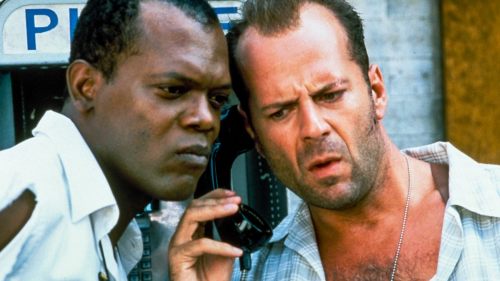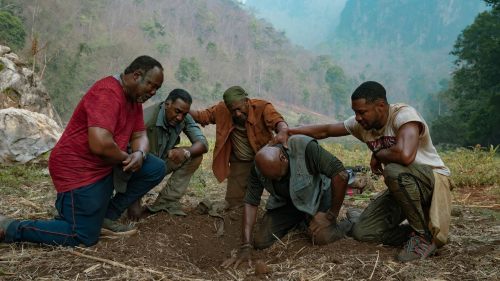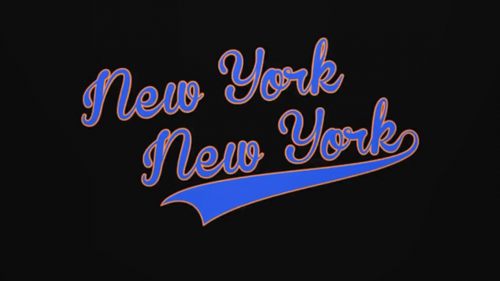CHI-RAQ Review: A Raging, Furious Satire
You have never seen a movie like Chi-Raq, and Chi-Raq is a movie that only Spike Lee could have made. It is, in many ways, his most Spike Lee film, and I feel like that alone can tell you whether this is a movie for you. I do hope it’s a movie for you, though, because it’s daring and strange, bold and earnest, funny and tragic, moving and infuriating all at once.
The big buy-in here: Chi-Raq is an update of Lysistrata, Aristophenes’ Greek comedy circa 411 BC, and it’s full of people speaking in rhyming couplets. In that play Lysistrata convinces the women of Greece to withhold sex from their men until they end the lengthy, costly Peloponnesian War, and Lee (with co-writer Kevin Willmott, the man behind the sincerely brilliant CSA: Confederate States of America) has taken the concept and characters and transposed them onto modern Chicago, a city in the grips of a massive surge in gun violence. The film’s title comes from South Side slang, merging Chicago and Iraq, which tells you just what a war zone the area has become in recent years. It’s also the name of one of the lead characters, a gang leader and rapper whose violent lifestyle is at the core of the death being brought not only to criminals and hoods but also to innocent children in the streets.
What Lee and Willmott do with their satire is stunning; the film swings between wildly absurd and throat-clenchingly affecting, sometimes within the same scene. Lee has one foot in polished, theatrical displays and another in handheld, verite realness. They sometimes collide, as when a chorus of women barge into a broadly comic scene bearing placards with the faces of real world victims of gun violence. It’s brilliant - Lee keeps you on your toes at all times, often turning the laughs into ash in your mouth.
Does he sometimes go too broad? Sometimes you swing and you miss, and when you swing with the fierce determination Lee shows here your misses will be extra wide (I’m sure he'd rather I use a basketball analogy on this one, but I’m already at the end of my sports references). There’s a real thrill in seeing scenes go crazily off the rails - a meeting of an angry men’s group ends up with everyone chanting the lyrics to the Cowardly Lion’s song Courage from The Wizard of Oz - and knowing that this is Lee throwing everything he has at this movie. It’s endlessly entertaining in its brazen nuttiness - and it’s completely sobering in its dedication to highlighting a constant, continuing tragedy in the streets of America. Because Lee isn’t just being funny, he isn’t just being satirical, he is blazingly, blindingly mad. He’s so mad he makes Paddy Chayefsky look like a guy who was slightly perturbed when he wrote Network.
That anger is galvanizing. It’s exciting. The film is fiery, and while it may move you to tears it will also move you to action. Lee didn’t have a party after the New York premiere of Chi-Raq, he led a protest march. This is agitprop that’s more Marx, Groucho than Marx, Karl, but I think both men would have appreciate the vigor with which Lee vents his venom.
And his anger isn’t directed at just one place. This isn’t the treatise on black on black violence that the racists who oppose #BlackLivesMatter seem to want. This is a film that hits targets across the board - yes, some of the barbs are aimed inwards, but many are aimed at the system that is constructed to keep blacks poor and killing each other, at the government that would rather build schools in Iraq than Chicago, at the police who are as dangerous as the gangs, at the culture that takes from the black experience while marginalizing black people. His vision isn’t restricted to just the city of Chicago, either - Lysistrata’s revolt is worldwide, and Lee draws the connection between peace on the corner and peace in the world. Don't worry, he doesn't cloak this stuff in metaphor. He comes right out and says it, has characters patiently explain it all.
Lee is aided by an absolutely stunning set of accomplices. Playing Lysistrata is Teyonah Parris, Dawn from Mad Men (and Coco from Dear White People), as sexy and fierce as heroine you’ve seen. She has the beauty and charm to start wars (and end them as well), but Parris brings a layer of steel that makes you believe Lysistrata could organize an army of women who spread their message of “No Peace, No Pussy” across the globe. She blossoms from being Chi-raq’s girl to being her own woman, and Parris makes that transformation as vibrant as the colors cinematographer Matthew Libatique brings into the frame.
Opposite her is Nick Cannon as Chi-raq, surprisingly deep for a guy whose work I had largely written off as fluffy in the past. As his name suggests, Chi-raq embodies the plague of violence consuming the South Side. Cannon goes heavy into Chi-raq, and his journey to true manhood - one that is defined by responsibility, not by street cred - gives the film an unexpected emotional topper at the end. Wesley Snipes is Cyclops, leader of the rival gang, and he’s just having fucking fun, as are many of the other great supporting stars. Their wackiness allows actress Jennifer Hudson to get very, very weepy as a woman whose daughter gets caught in a drive by, and goddess Angela Bassett is allowed the space to be the moral authority at the center of it all.
But when it comes to co-stars standing above them all is Samuel L. Jackson as Dolemites (pronounced as the Greeks would say it), a blinged out pimp who narrates the story of Chi-Raq, delivering hilarious and biting commentary throughout. Every single couplet Jackson speaks is brilliant, and many are show-stoppingly hilarious - and he delivers them as only Samuel L. Jackson, full of righteousness, could. It’s magic.
In many ways Chi-Raq feels like Lee coming back at two failed films. He reapproaches the battle of the sexes stuff that was so miserable in She Hate Me, doing much, much better this time, and he goes after the biting satire that he didn’t quite make work in (the underappreciated) Bamboozled. This time it all pays off; Chi-Raq is his best narrative film since 2006’s Inside Man (although I will still go to bat for Red Hook Summer, which I think was hobbled by its budget and his reliance on a student crew). We have to be honest: it’s unlikely that Lee is ever, ever going to match, let alone exceed, Do The Right Thing, but Chi-Raq sees the older Spike giving the younger Spike a run for his money in energy, madness and sheer cinematic chutzpah.
Lysistrata was first performed while the war still raged, and it’s likely that the opening night of Chi-Raq will see corpses on the streets of Chicago (and other cities). That adds a particular tension to the story - how will Lee wrap up Lysistrata’s sex strike? I like his solution - it’s hopeful but at the same time heartbreaking, and it’s very personal. That, in the end, is the message of Chi-Raq. It’s not that women should withhold sex to control men but rather that we’re all in it together. Even if you’re not out there fighting and dying in the streets you are responsible for what is happening in the world. Your decisions can have an impact that make things better, and your inactivity can allow things to get worse. Chi-Raq isn’t about some kind of vague personal responsibility but rather a very specific way of living your life, of acknowledging the world’s problems are your problems, and that the solutions begin with you. At the other end of the anger and the satire is this inspirational feeling that, no matter how bad things seem, we can choose to make them better.



